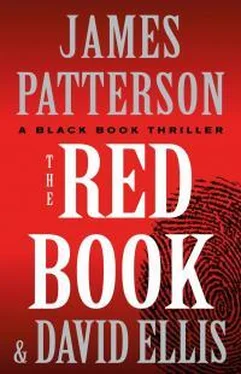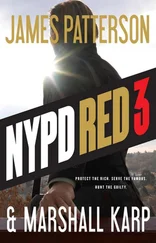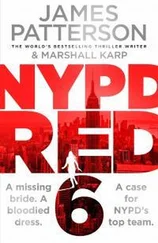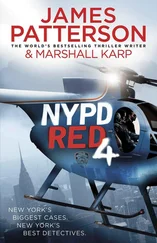Spaulding opens his hands. “If you’re suggesting that my client was responsible for this—”
“I’m not suggesting it, Counselor. I’m saying it. It’s not up for debate. So the question is, what’s Jericho going to do about this?”
“Sounds like you’re about to tell us.”
“I am. Jericho’s going to give us the shooter, and we’re going to arrest that individual.”
A chuckle bursts from Spaulding. “That’s—I mean, listen, Detective—”
“If he doesn’t by tomorrow, we’re holding a press conference,” I say. “We will announce that we like the Nation for this shooting. The turf war, the whole thing. Easy for the public to understand. And the mayor will demand that CPD declare war on the Imperial Gangster Nation. Jericho’s name will be plastered all over the papers. He’ll be famous.”
Jericho blinks, looks away. There is probably some appeal to Jericho’s ego in that. But there’s a reason why Jericho has been successful. He’s flown under the radar, quietly building his empire. He doesn’t want to be a household name.
“This conversation is ridiculous,” says Spaulding, “and it’s over.”
“We’re here to listen. So let’s listen.” Jericho finally speaks. Just a few words, but enough to sweep the legs out from under his lawyer.
Spaulding has no choice here but tries to recover some of his dignity by saying, as if it was his idea, “I guess you might as well finish your ridiculous proposal.”
“I have all the resources I need,” I continue. “For this case? With this kind of heat? I could post a patrol car on every corner of every block of your turf. We’ll have a battalion of officers itching to knock down doors.”
“Feds would want in on this, too,” Carla adds. “So add the FBI, DEA, ATF. We’ll come at you from every angle.”
“We’ll miss as often as we hit, but so what?” I say. “We don’t have to bat a thousand. Christ, you hit .333 in the bigs, they give you a twenty-million-dollar contract. The point is, we’ll be watching every move you make. The other street gangs will know that associating with the Nation is bad for business. Your own people will start to wonder whether it’s worth it. Any new territory you’ve been adding to your little fiefdom, that’s over. And you’ll probably have a mutiny on your hands.”
“Maybe so,” says Jericho, still a wall of stone. “Maybe not.”
“Yeah, but you’re nothing if not a smart businessman,” says Carla. “You’re risk-averse. You have to be. Why bring all this on yourself when you can cure it by giving up a couple of your men?”
“Men who fucked up royally,” I add, “by killing that innocent little girl. By bringing all this heat on you.”
Jericho doesn’t speak, but he inclines his head, taking our points.
What’s left unsaid, and will remain that way, is that we all know which lawyer’s going to show up to represent the shooters if we arrest them: Michael Spaulding, Esquire. He’ll protect his meal ticket. He won’t let those boys utter one word about Jericho.
I hand Spaulding my card. “The anonymous number’s on there,” I say. “Nobody has to know how I got my information. Nobody knows this conversation even happened. But I need it by tomorrow.”
“We have video of the shooting, by the way,” Carla says. “So don’t try to pin this thing on Pope Francis or Bozo the Clown.”
We don’t have video of the vehicle occupants or the shooting itself, only the car. But it’s good improv by Carla. Smart. If Jericho thinks we have faces on video, he can’t just give us some patsy; we’ll get the actual shooters.
If we get anything at all.
“I need it by tomorrow,” I say. “Make a good business decision, Jericho.”
Chapter 19
DISCO LIGHTS a cigarette while he sits in his car. He had vowed to quit. He hasn’t lit up in three weeks. But all that changed after the call from Augustina at the restaurant, after reading about the death of the four-year-old girl with the pigtails. Now’s not the time.
There’s never a bad time to quit . Sure, but whoever said that didn’t have the entire Chicago Police Department after him.
He rubs an eye with his knuckle. He didn’t bother trying to sleep. No chance. Anyway, he needed to be up by three, pick up Nicolas and Trev by three fifteen, stop at the drop-off point, then make it to the location by four, while it’s still dark.
Out of the apartment building comes Nicolas, long and rangy, a flat nose and dead eyes, his hair buzzed tight, dark circles under his eyes at this hour. Like Disco, Nicolas was recruited out of Berkut, the Ukrainian secret police, mostly covert missions to suppress political opposition, anything from surveillance and intelligence gathering to assassinations and torture. Nicolas came to the States years after Disco, each of them chosen by General Boholyubov, who ran Berkut before it disbanded. Nicolas was especially fond of the Berkut rape rooms, which is probably why Boho brought him here.
Nobody scares the girls more than Nicolas.
“How’s Trev?” Disco asks in their native tongue. Disco normally has a rule that they speak English, but that’s another exception he makes under the circumstances.
“Scared to death,” Nicolas answers, also in Ukrainian. “He watches the news, reads the internet. He thinks we’re all going to prison.”
Trev could be a problem. Unlike Disco and Nicolas, he’s not Berkut, not someone trained. He came fresh from the army in Ukraine. Physically capable and morally flexible. But lacking fearlessness. Or, more accurately, lacking the ability to harness fear.
Five minutes later, they pick up Trev—smaller, darker, boyish, though looking worn out, aged well beyond his twenty-six years. “It’s all over TV,” says Trev. “It’s all over the internet.”
“Then stop watching TV,” Disco replies. “Stop reading the internet.”
Disco drives up to the northwest side, finds the alley, pulls over to the side of the road. Neither Nicolas nor Trev has ever seen the actual meeting place. Disco likes to keep some things to himself.
Nor have they ever met Dennis Porter. Nobody will meet his contact in Internal Affairs besides Disco.
Anyway, Porter won’t be there. This is only a pickup.
Or at least that’s the plan. You can never be sure. The shooting in K-Town shook up everyone, Porter included. From a strategic standpoint, he can’t see the logic in Porter’s ambushing him here, trying to kill him. But if there’s one thing Disco has learned, it’s that you can never fully understand the motives of your “friends.”
Disco draws his Ruger and holds it at his side as he approaches the alley. He stops, listens, hears nothing but faint sounds of trains, some birds chirping.
Disco walks the alley, heads to the same garage, fifth one down. This time, the garage door is down, but it’s not locked, and the automatic opener has been disabled. He raises the door with an abrupt yank and jumps back, crouches, gun aimed inside.
The space is empty. His adrenaline decelerates.
In the middle of the garage, on the ceiling, a plastic enclosure covering the controls for the door opener. He uses a ladder, reaches up, lifts the enclosure carefully, and unhooks it from its moorings. With his other hand, he reaches in and pulls down the heavy paper bag.
He closes the enclosure back up, puts away the ladder, and looks inside the paper bag.
A SIG Sauer pistol. A suppressor. And a crushed cigarette butt in a plastic bag.
He breathes a sigh of relief. Porter came through.
Chapter 20
THE HOUSE is in Englewood, on Union Avenue south of Marquette, as rough a neighborhood as they come. An A-frame with aluminum siding. On one side an alley, on the other an empty lot where a house once stood. Disco scouted it earlier tonight, after meeting with Porter.
Читать дальше












